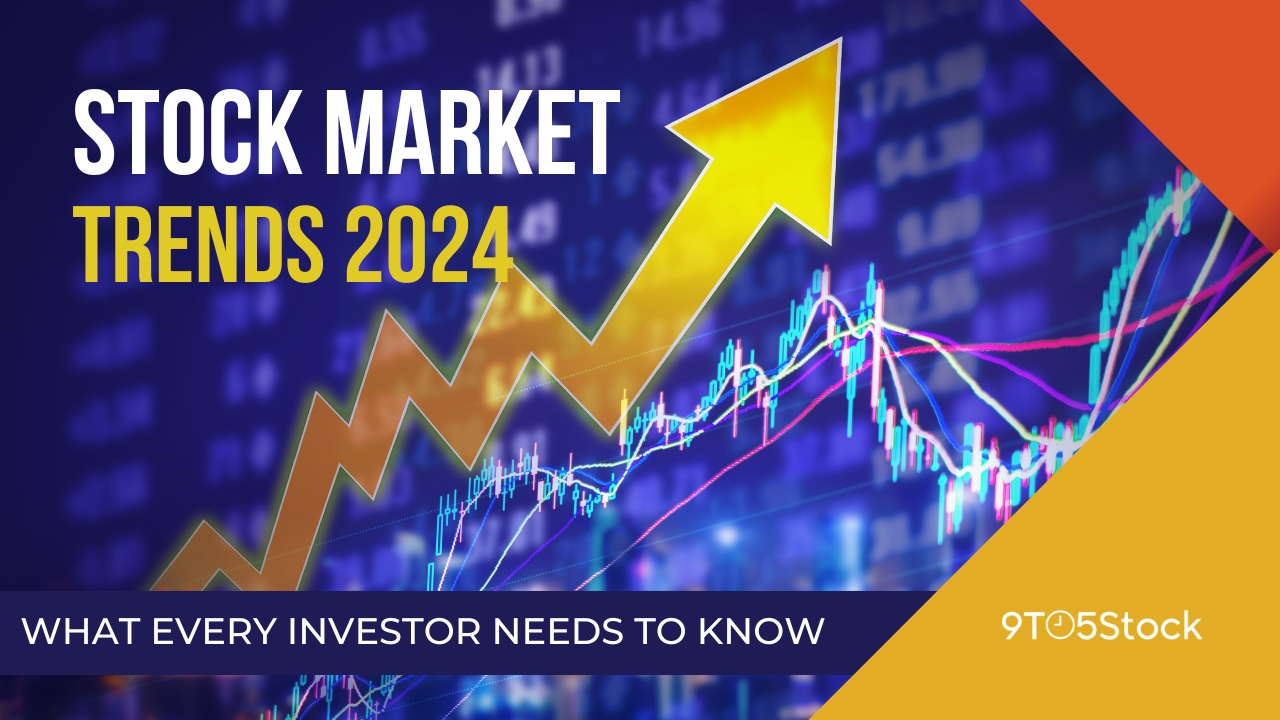The stock market is a dynamic ecosystem influenced by a myriad of factors, and understanding the prevailing trends is crucial for investors seeking to make informed decisions. As we step into 2024, let’s delve into the anticipated trends and insights that could shape the investment landscape in the coming months.
Introduction of Stock Market Trends 2024
2023 was marked by unprecedented events, from the global pandemic’s lingering effects to geopolitical tensions and technological breakthroughs. As we move forward, investors are eager to navigate the uncertainties and capitalize on emerging opportunities.
1. Overview of the Stock Market in 2023
Before delving into the future, let’s briefly recap the major themes of 2023. Despite initial volatility, the stock market showcased resilience, with certain sectors outperforming others. Tech stocks surged amid digital transformation initiatives, while traditional industries faced challenges amid supply chain disruptions and inflationary pressures.
2. Anticipated Trends for 2024
Sector Rotation
One of the key trends expected in 2024 is sector rotation. As economic conditions evolve, investors may witness shifts in sectoral preferences, with a potential rotation from growth to value stocks or vice versa.
Impact of Economic Indicators
Economic indicators such as GDP growth, inflation rates, and unemployment figures will continue to influence market sentiment. Investors should closely monitor these indicators to gauge the health of the economy and adjust their investment strategies accordingly.
Technological Advancements
The pace of technological innovation is relentless, driving disruption across industries. Companies at the forefront of innovation are likely to attract investor attention, particularly in sectors such as artificial intelligence, renewable energy, and biotechnology.
3. Market Volatility and Risk Management Strategies
While volatility presents opportunities for profit, it also poses risks. Investors should adopt robust risk management strategies, including diversification, hedging, and setting stop-loss orders, to mitigate potential losses during periods of market turbulence.
4. Opportunities in Emerging Markets
Emerging markets offer significant growth potential, fueled by demographic trends, urbanization, and rising consumer spending. However, investing in these markets requires thorough research and understanding of geopolitical risks and regulatory environments.
5. Sustainable Investing
The importance of environmental, social, and governance (ESG) factors is gaining prominence among investors. Companies with strong ESG practices are perceived as more resilient and may outperform their peers in the long run, making sustainable investing a compelling strategy.
6. Importance of Diversification
Diversification remains a cornerstone of prudent investing. By spreading their investments across different asset classes, sectors, and geographic regions, investors can reduce portfolio risk and enhance long-term returns.
7. Key Metrics to Watch
Investors should pay attention to key metrics such as price-to-earnings (P/E) ratio, earnings per share (EPS) growth, and debt levels when evaluating potential investments. These metrics provide valuable insights into a company’s financial health and valuation.
8. The Role of Central Banks
Central banks play a pivotal role in shaping monetary policy and interest rates, which in turn influence asset prices and market dynamics. Changes in central bank policy could have significant implications for investors, necessitating a nuanced understanding of monetary policy.
9. Geopolitical Influences
Geopolitical events, such as trade tensions, geopolitical conflicts, and regulatory changes, can have profound effects on global markets. Investors should stay informed about geopolitical developments and assess their potential impact on investment portfolios.
10. Navigating Market Sentiment
Market sentiment can fluctuate based on news, rumors, and investor emotions. Successful investors remain disciplined and avoid making impulsive decisions based on short-term market movements, focusing instead on long-term fundamentals.
11. Long-Term Investing Strategies
While short-term fluctuations are inevitable, investors with a long-term perspective can capitalize on compounding returns and ride out market volatility. Patient investing, coupled with regular portfolio rebalancing, can help investors achieve their financial goals over time.
12. The Rise of ESG Investing
ESG investing is gaining traction as investors seek to align their financial goals with their values. Companies that prioritize environmental sustainability, social responsibility, and good governance are increasingly attracting capital, reflecting a shift towards more ethical and sustainable investing practices.
Must Read: 10 Surprising Stock Market Tips Every Investor Needs to Know!
Conclusion
As we Start on the journey into 2024, the stock market presents a myriad of opportunities and challenges for investors. By staying informed, maintaining a diversified portfolio, and adopting a long-term perspective, investors can navigate the ever-changing landscape and achieve their financial objectives.
FAQs (Frequently Asked Questions)
How can I stay updated on stock market trends in 2024?
Keeping abreast of financial news, following reputable analysts, and leveraging online resources can help you stay informed.
What sectors are poised for growth in 2024?
Sectors such as technology, healthcare, and renewable energy are expected to exhibit strong growth potential.
What are the risks of investing in emerging markets?
Emerging markets can be volatile and subject to geopolitical and regulatory risks, requiring thorough due diligence from investors.
How can I incorporate ESG factors into my investment strategy?
You can invest in ESG-focused funds or individual companies with strong ESG credentials to align your investments with your values.
What is the significance of central bank policies for investors?
Central bank policies, particularly regarding interest rates and monetary stimulus, can impact asset prices and market liquidity, influencing investment decisions.
Hello guys! My name is David Wilson, and I'm a passionate stock market enthusiast and the founder of 9to5Stock. With a deep understanding of market dynamics and a commitment to empowering others, I share valuable insights, strategies, and updates to help investors like you make informed decisions and achieve financial success. Welcome to our community, and let's thrive together in the world of investing!
